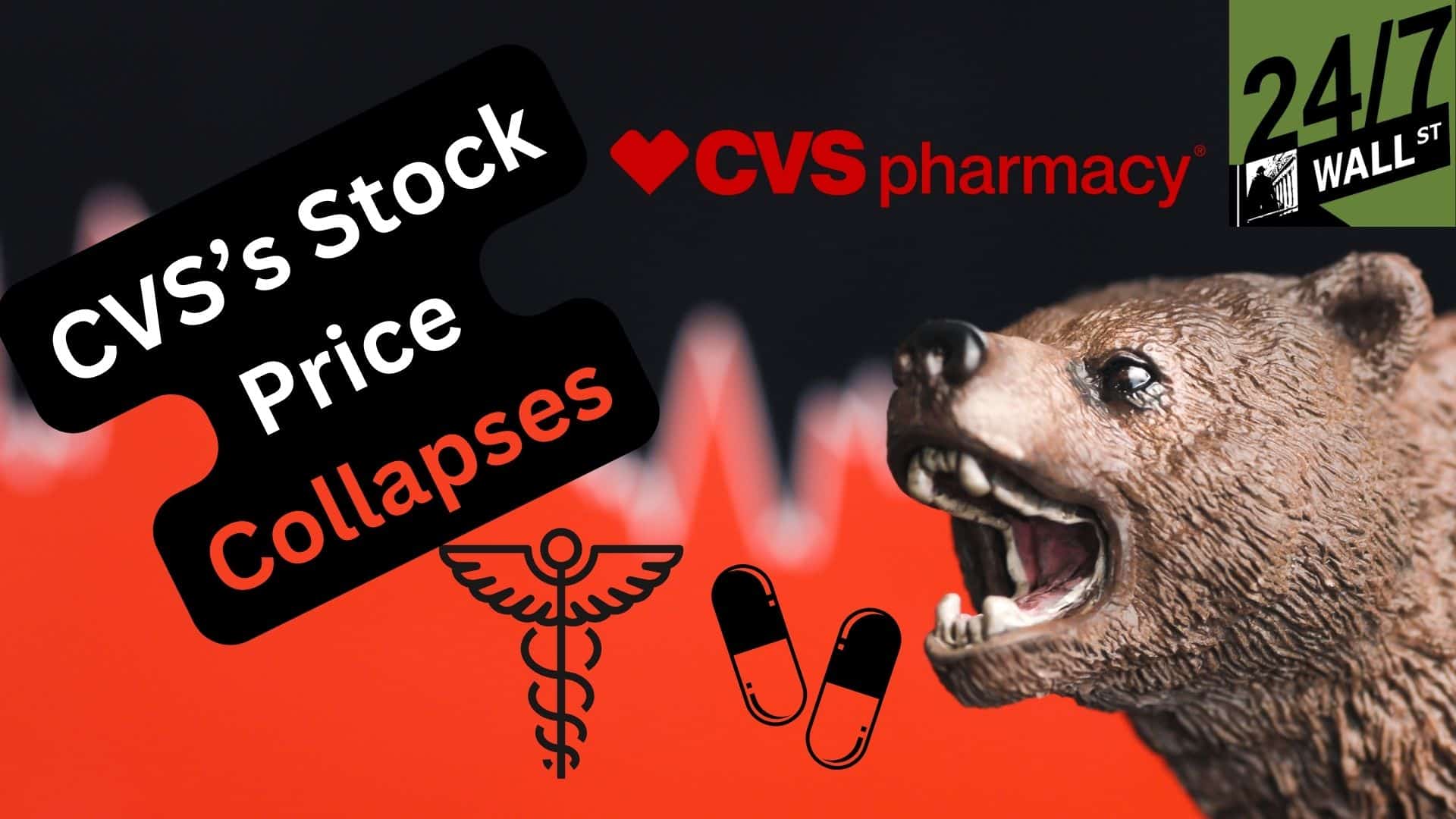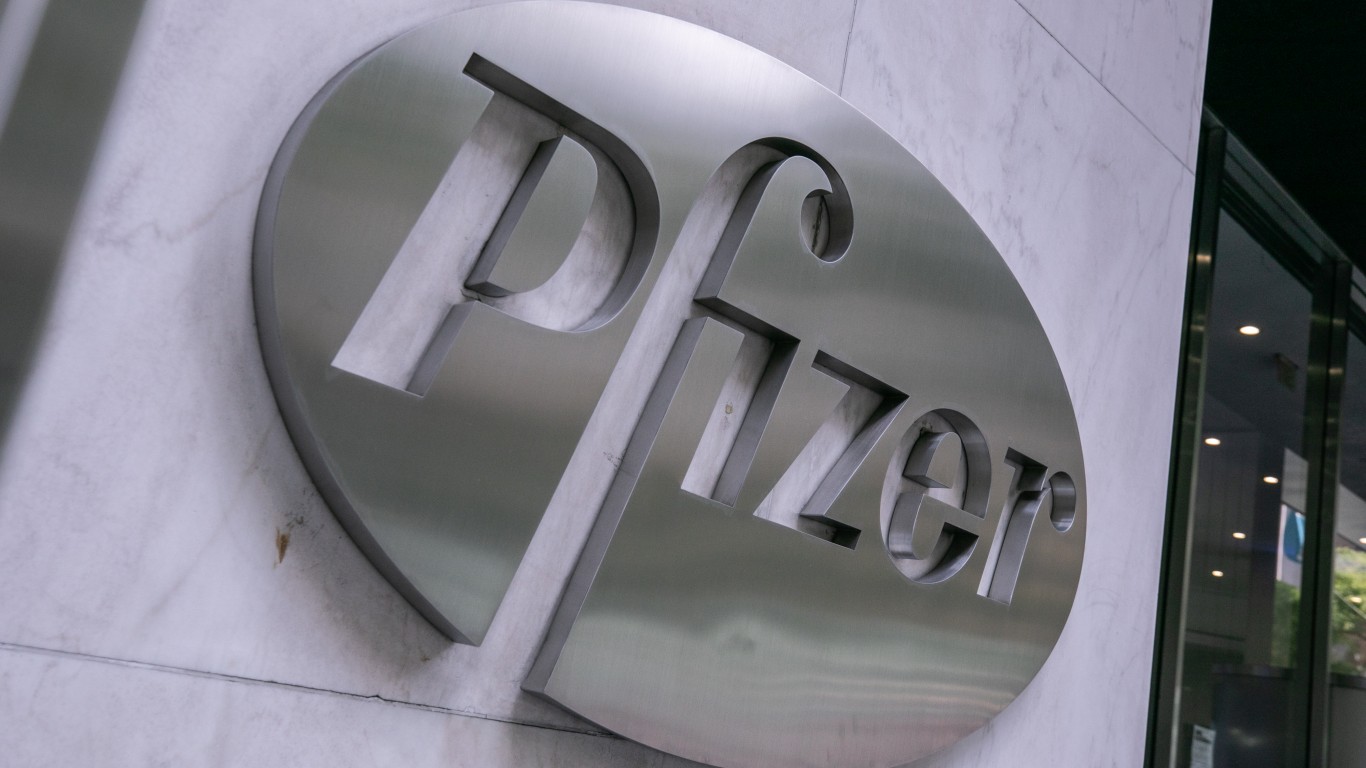
CVS Is Destroying Wealth
Shares of CVS (NYSE: CVS) have been significantly impacted, with a roughly 30% decline year to date. Key issues include rising medical costs, particularly due to surgeries, and challenges related to their partnership with Target. Despite these setbacks, CVS’s low valuation and substantial free cash flow indicate potential for recovery if operational efficiencies improve and medical cost pressures abate.
But Other Stocks Can Build It
On the other side of the ledger are AI stocks like Super Micro (Nasdaq: SMCI) and Nvidia (Nasdaq: NVDA) flirting with all time highs. If you’re worried the gains have already been had, don’t. As of today, the AI boom shows no signs of slowing down.
Our brand-new “The Next NVIDIA” report dives deep into AI winners beyond just NVIDIA. Make sure to grab a complimentary copy if you’re interested in discovering more high-upside ideas in this massive trend. You can access a free copy here.
Transcript:
Austin, we’ve talked about Walgreens being the worst performing stock in the S&P 500 year to date.
Not much better, though, is CVS, whose shares have been wrecked.
So the question is, what’s going on with this industry?
And is there a potential for turnaround if investors are looking at this as a potential value?
Really great question.
So shares of CVS are down roughly 30% year to date.
And many of the same troubles that have plagued Walgreens are also affecting CVS.
Of course, they’re competitors in the same industry.
So on May 1st of this year, the company really spooked investors with both earnings and guidance.
It was a double whammy.
So CVS’s adjusted earnings per share came in at $1.31 for the quarter, far below the analyst’s expectations of $1.69.
And CVS, in addition to coming in below those expectations, reduced their earnings guidance for the year from $8.30 per share to just $7.
That’s a huge cut.
So the big reason for the revised outlook is rising medical costs.
So if we look at what’s happened particularly with CVS over the last year, one of the major reasons for this increase is surgeries.
While CVS doesn’t complete them at their pharmacies, remember that they do own Aetna, an insurance company that reimburses individuals and has huge payouts for these procedures.
A lot of these procedures and surgeries were paused during COVID.
So now you have a lot of customers going out there getting the medical procedures that they were not able to get the last few years.
And of course, Aetna has these huge payouts to reimburse them for that.
Another issue is that CVS also has a really close relationship with Target.
Remember, they place locations in many of their stores after buying Target’s healthcare business.
And earlier this year, the company announced that it was closing locations in its Target stores.
It didn’t specify exactly how many, but we know that Target has had their own struggles, both with theft and unprofitable stores.
And this is a brand that really needs to get a lot more defensive and see, so goes Target, so goes CVS’s 1,800 pharmacy locations as well.
Remember, CVS operates 1,800 pharmacies within Target’s 1,950 locations in the US.
So as foot traffic to Target maybe wanes or as they close locations, that’s also going to flow through and hit CVS’s bottom line.
Earlier this year, the company reported declines in operating income for its health care benefits business as a result of rising medical costs associated with Medicare Advantage plans.
So, of course, that sort of echoes the surgery point made earlier.
There’s rising costs associated with its health care business.
So taking it all together, you’ve got rising medical costs, potential overextension with medical services, and maybe even overexpansion with its locations and how it’s tried to integrate with Target and had all of their standalone locations beyond that.
And we’ve seen that with Walgreens as well.
I mean, Walgreens revealed to us that roughly a quarter of their locations are profitable, which indicates that overexpansion and poor operating efficiencies at those locations and CVS is being afflicted with the same thing.
All of that is in the rear view mirror, though.
So if you look at a company today, paying for 10 times earnings, got a 4.5% dividend yield, and revenue does continue to grow.
It’s up to over $360 billion in the last 12 months.
So this is a huge company that does huge revenue.
They’re still doing over $10 billion in free cash flow.
That will almost certainly increase as they close underperforming locations and as this as the surgery trend kind of abates.
So I can’t predict the future for CVS.
It’s an enormous company that touches the entire US economy, but they certainly look like they have the right ingredients to be a great stock from here.
If they can get back towards some operational efficiency, stop paying out so much for surgeries and reimbursements, maybe close some underperforming locations, it certainly could be a great stock.
But the healthcare sector, it’s really hard to unpack.
There’s so many different trends.
And there’s also of course the demographic tailwinds of an aging US population, which could further either propel or complicate the story depending on how many procedures they’re reimbursing.
So the company looks cheap today.
How did they get out of this mess?
Hard for us to say.
You know, if someone wants to take a speculative bet on it, the multiples are certainly there to justify a small position.
But you’re really betting on a lot of things changing between now and the next, you know, five to ten years to have all that cash flow and profitability hit the bottom line.
Austin, just a few figures to put this in perspective for the viewers.
You know, 10 times earnings, the entire S&P 500 I believe is trading at 21 times forward earnings.
Also, seven times cash flow, it’s one of the cheapest levels in the market.
So this isn’t just trading at cheap levels, it’s trading at extremely cheap levels, which shows the pessimism baked in.
So if they can turn around, if they can cut costs and stem the bleeding, it’s going to work.
It’s just a question of how bad are the headwinds across this entire industry.
Travel Cards Are Getting Too Good To Ignore (sponsored)
Credit card companies are pulling out all the stops, with the issuers are offering insane travel rewards and perks.
We’re talking huge sign-up bonuses, points on every purchase, and benefits like lounge access, travel credits, and free hotel nights. For travelers, these rewards can add up to thousands of dollars in flights, upgrades, and luxury experiences every year.
It’s like getting paid to travel — and it’s available to qualified borrowers who know where to look.
We’ve rounded up some of the best travel credit cards on the market. Click here to see the list. Don’t miss these offers — they won’t be this good forever.
Thank you for reading! Have some feedback for us?
Contact the 24/7 Wall St. editorial team.





